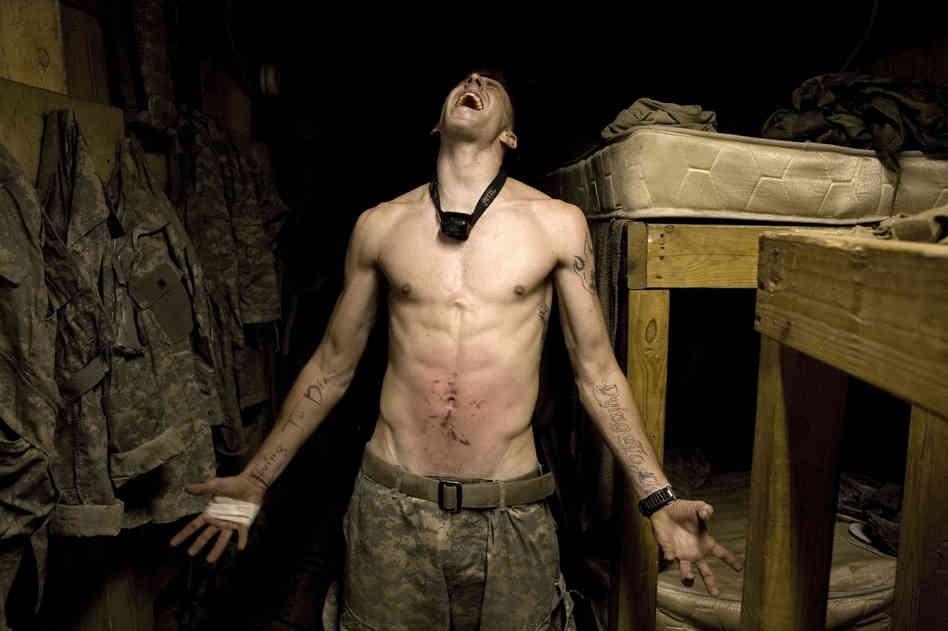

This reflection comes from Brooks Tate.
After writing The Perfect Storm (1997), Sebastian Junger wrote War (2010), a melting pot of observations of the American soldier in Afghanistan. In segments over a 15-month period, Junger joins the Battle Company in the Korengal Valley, home of the heaviest fighting in Afghanistan. Multiple firefights in a day is no anomaly. With individuals exposed to so much combat, Junger explores the effects of combat on man (as we also see in Hollywood’s The Hurt Locker and Zero Dark Thirty). Why are veterans unable to return to normal life at home? Why do men choose to reenlist? Just two of the many questions that arise, and Junger’s conclusions are disturbing. We would like to believe these aberrations are breakdowns in the aftermath of extreme trauma. What we don’t want to hear is that these men want to return to combat because of all the good they find there: brotherhood; purpose; exhilaration. This book is a page turner and fits together some of our disjointed thinking about war and what it does to its participants. Of particular note here is Junger’s look at the nature of fear.
Courage–that is, the strength to withstand fear–has always been highly valued in the soldier. What makes one soldier more fearful (or more courageous) than another? What makes one man continue his duty in the face of danger while another falls apart? During World War II, the British and American military sought to find answers to these valuable questions. Among their many studies, one found that among bomber crews suffering a 70% casualty rate, pilots reported less fear than their turret gunners. Though these gunners and pilots shared the same fate – they were literally “in it together” – the ones behind the wheel were less worried. Junger writes,
“One of the most puzzling things about fear is that it is only loosely related to the level of danger…The primary factor determining breakdown in combat does not appear to be the objective level of danger so much as the feeling – even the illusion – of control. Highly trained men in extraordinarily dangerous circumstances are less likely to break down than untrained men in little danger” (122-123).
For Junger, fear is a function of control, not circumstantial danger. This time of year, one reads again the opening chapters of Matthew and Luke to revisit the Christmas story, and one can’t help but notice the fear that the messengers of God inspire in people. To Zechariah, to Joseph and Mary, to the shepherds, the angels begin their introductions with a hearty, “Do not fear.”
After a childhood-full of Sunday Schools about God being your loving, ever-present Father, the easiest approach is just to skip over these lines about fear. The “fear of God” is just an Old Testament fire and brimstone thing, right? God’s not the smiting kind–I mean, He has come to us as helpless babe. We tell ourselves that we can move on from this old, rugged God-fear, but we see these New Testament characters as fearful as Adam in the garden, and their worry is not just a lingering old-school Hebrew thought.
We still have this fear today. It’s a fear that comes the moment we lose control. Even trusting that an angel is bringing Good News, Mary tremors with fear because of the sheer out-of-control nature of this encounter. She knows that, whether for good or bad, her input has nothing to do with the outcome. Where we feel fear is where we have no power to help ourselves – or even to maintain our illusions of self-help.
Fear is a bad feeling, and we’d like to skip it. We’d like to leapfrog the Old Testament into the New, to dismiss Moses and embrace Jesus, to hear only the Good News of God without hearing any of the bad news about ourselves, because frankly it is quite unpleasant when you’re down in the dumps to hear that you can’t do a damned thing about it. We don’t mind saying God is in control, but we have strong feelings about relinquishing our frontiers of sovereignty. To do this would be to replace the confidence in ourselves with the fear of God. Who would choose fear over confidence? While it is God who inspires the fear in our hearts, He doesn’t leave us to wallow there. Fear is our first response to losing control, but God asks that it not be the last. “Do not fear, for I am with you; do not be dismayed, for I am your God. I will strengthen you and help you; I will uphold you with my righteous right hand.”

COMMENTS
Leave a Reply













